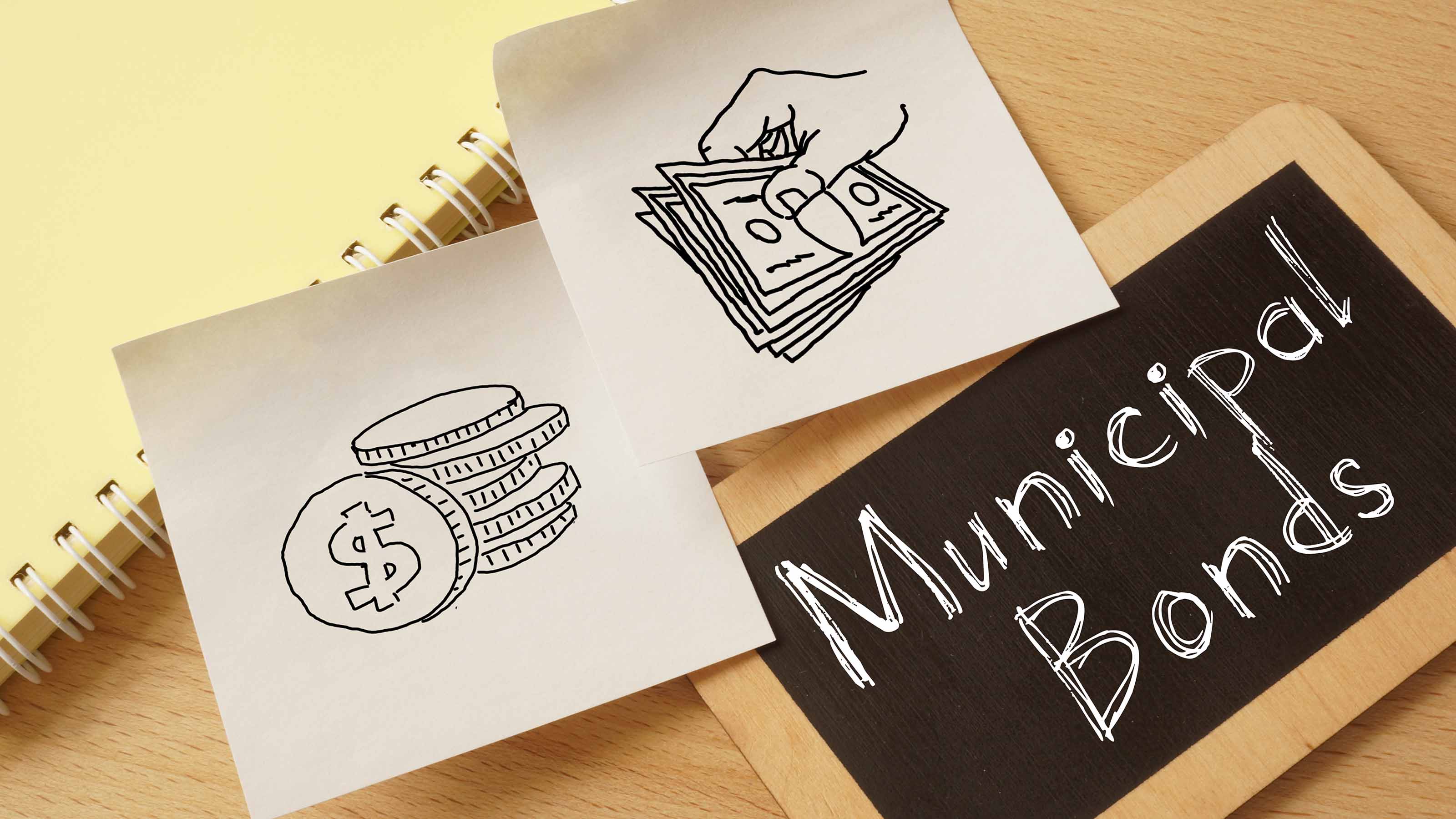4 Great Mutual Funds to Earn 1% - 5% on Municipal Bonds
If you make a lot of money and live in a high-tax state, municipal bonds can be magic.

Profit and prosper with the best of Kiplinger's advice on investing, taxes, retirement, personal finance and much more. Delivered daily. Enter your email in the box and click Sign Me Up.
You are now subscribed
Your newsletter sign-up was successful
Want to add more newsletters?

Delivered daily
Kiplinger Today
Profit and prosper with the best of Kiplinger's advice on investing, taxes, retirement, personal finance and much more delivered daily. Smart money moves start here.

Sent five days a week
Kiplinger A Step Ahead
Get practical help to make better financial decisions in your everyday life, from spending to savings on top deals.

Delivered daily
Kiplinger Closing Bell
Get today's biggest financial and investing headlines delivered to your inbox every day the U.S. stock market is open.

Sent twice a week
Kiplinger Adviser Intel
Financial pros across the country share best practices and fresh tactics to preserve and grow your wealth.

Delivered weekly
Kiplinger Tax Tips
Trim your federal and state tax bills with practical tax-planning and tax-cutting strategies.

Sent twice a week
Kiplinger Retirement Tips
Your twice-a-week guide to planning and enjoying a financially secure and richly rewarding retirement

Sent bimonthly.
Kiplinger Adviser Angle
Insights for advisers, wealth managers and other financial professionals.

Sent twice a week
Kiplinger Investing Weekly
Your twice-a-week roundup of promising stocks, funds, companies and industries you should consider, ones you should avoid, and why.

Sent weekly for six weeks
Kiplinger Invest for Retirement
Your step-by-step six-part series on how to invest for retirement, from devising a successful strategy to exactly which investments to choose.
Issued by state and local governments, municipal bonds yield an average of just 2.5%. But you won’t owe a penny in federal tax on most types of muni-bond income, and you can get a break on state taxes, too, if you invest in munis issued in the state where you reside. For instance, if you live in a state with a stiff income tax, such as California, and are in the top combined federal and state bracket of 50.9%, a tax-free yield of 2.5% would be equivalent to a 5.1% yield from a taxable bond—close to the yield of many low-quality corporate bonds.
Earnings for All
- Investment-Grade Bonds: 2%-4%
- Real-Estate Investment Trusts: 4%-6%
- High-Yield Bonds and Bank Loans: 3%-5%
- Foreign Bonds: 3%-6%
- Master Limited Partnerships: 6%-8%
- Closed-End Funds: 7%-9%
- Mortgage REITs: 8%-11%
Granted, the muni market has experienced some turmoil lately because of concerns that Congress will cut federal income tax rates, eroding the value of the tax-exempt status of muni interest. But changes in tax rates have historically had minimal impact on muni prices, says Christopher Ryon, a bond fund manager with Thornburg Investment Management. “It’s a red herring,” he says. “Tax changes are going to take a long time to work through the legislative process, and I don’t think they’ll be a major driver of the muni market.”
Risks to your money. Munis could slide if states or local governments run into financial trouble (for instance, some bonds issued by Illinois, a state that has long outspent its revenues, trade at 87 cents on the dollar). Muni bonds can be sensitive to changes in interest rates, especially if they mature far in the future—say, 15 or 20 years from now. Many muni funds hold loads of long-term bonds, which could prove disastrous if rates keep rising. Consider, for example, Nuveen All-American Municipal Bond Fund (symbol FACCX). Its share price would likely drop by more than 8% if long-term rates were to increase by one percentage point.
From just $107.88 $24.99 for Kiplinger Personal Finance
Become a smarter, better informed investor. Subscribe from just $107.88 $24.99, plus get up to 4 Special Issues

Sign up for Kiplinger’s Free Newsletters
Profit and prosper with the best of expert advice on investing, taxes, retirement, personal finance and more - straight to your e-mail.
Profit and prosper with the best of expert advice - straight to your e-mail.
How to invest. To maximize tax savings, find a muni mutual fund that will trim both federal and state taxes. For now, it’s prudent to stick with short- or intermediate-term funds, forgoing some income in exchange for a buffer against rising rates. A good choice for Californians is Fidelity California Limited Term Tax-Free (FCSTX, yield 1.1%). For New Yorkers, USAA New York Bond (USNYX, 2.0%) looks like a solid bet. Neither fund takes excessive interest-rate risk, keeping its duration (a measure of sensitivity to rates) relatively low. In the national muni-bond realm, we like Fidelity Municipal Income 2019 (FMCFX, 1.1%), which will liquidate shortly after June 30, 2019. Its average duration is 2.1 years, suggesting that its price would decline by roughly 2% if rates were to rise by one percentage point.
Aiming for higher returns? Take a flier on SPDR Nuveen S&P High Yield Municipal Bond ETF (HYMB, price $57, 4.7%), an exchange-traded fund that holds bonds issued by municipalities with below-average credit ratings. On a taxable-equivalent basis, the fund yields 8.3% for investors in the top federal tax bracket of 43.4% (which includes a 3.8% surcharge on investment income). That’s on par with the average yield of taxable “junk” bonds, which are generally riskier than muni bonds. The fund’s duration of 7.8 years looks high, but the steep after-tax yields of bonds in the portfolio should help cushion against losses due to rising rates. The fund’s holdings could also slide if issuers default on their obligations or are downgraded by credit-rating agencies.
Profit and prosper with the best of Kiplinger's advice on investing, taxes, retirement, personal finance and much more. Delivered daily. Enter your email in the box and click Sign Me Up.

-
 5 Vince Lombardi Quotes Retirees Should Live By
5 Vince Lombardi Quotes Retirees Should Live ByThe iconic football coach's philosophy can help retirees win at the game of life.
-
 The $200,000 Olympic 'Pension' is a Retirement Game-Changer for Team USA
The $200,000 Olympic 'Pension' is a Retirement Game-Changer for Team USAThe donation by financier Ross Stevens is meant to be a "retirement program" for Team USA Olympic and Paralympic athletes.
-
 10 Cheapest Places to Live in Colorado
10 Cheapest Places to Live in ColoradoProperty Tax Looking for a cozy cabin near the slopes? These Colorado counties combine reasonable house prices with the state's lowest property tax bills.
-
 What Fed Rate Cuts Mean For Fixed-Income Investors
What Fed Rate Cuts Mean For Fixed-Income InvestorsThe Fed's rate-cutting campaign has the fixed-income market set for an encore of Q4 2024.
-
 The Most Tax-Friendly States for Investing in 2025 (Hint: There Are Two)
The Most Tax-Friendly States for Investing in 2025 (Hint: There Are Two)State Taxes Living in one of these places could lower your 2025 investment taxes — especially if you invest in real estate.
-
 The Final Countdown for Retirees with Investment Income
The Final Countdown for Retirees with Investment IncomeRetirement Tax Don’t assume Social Security withholding is enough. Some retirement income may require a quarterly estimated tax payment by the September 15 deadline.
-
 Dividends Are in a Rut
Dividends Are in a RutDividends may be going through a rough patch, but income investors should exercise patience.
-
 Municipal Bonds Stand Firm
Municipal Bonds Stand FirmIf you have the cash to invest, municipal bonds are a worthy alternative to CDs or Treasuries – even as they stare down credit-market Armageddon.
-
 High Yields From High-Rate Lenders
High Yields From High-Rate LendersInvestors seeking out high yields can find them in high-rate lenders, non-bank lenders and a few financial REITs.
-
 Time to Consider Foreign Bonds
Time to Consider Foreign BondsIn 2023, foreign bonds deserve a place on the fringes of a total-return-oriented fixed-income portfolio.
-
 The 5 Best Actively Managed Fidelity Funds to Buy and Hold
The 5 Best Actively Managed Fidelity Funds to Buy and Holdmutual funds Sometimes it's best to leave the driving to the pros – and these actively managed Fidelity funds do just that, at low costs to boot.